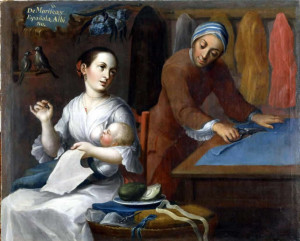11th International Conference Crossroads in Cultural Studies
University of Sydney and Western Sydney University
14-17 December, 2016
Conference Website
For the first time in its history, Crossroads in Cultural Studies is coming to the southern hemisphere. Hosted by the University of Sydney and Western Sydney University, the 11th International Conference Crossroads in Cultural Studies will be held in Sydney, Australia from December 14th to 17th 2016. Scholars from around the world will come together in the beautiful summertime setting of Sydney University to engage with the past, present and future of cultural studies scholarship.
Keynote Speakers: Ghassan Hage, Audra Simpson, Kamala Visweswaran.
Other Plenary and Featured Spotlight Speakers Will Include: Paula Banerjee, Sarah Banet-Weiser, Alison Bashford, Amita Baviskar, Jean Burgess, John Erni, Martin Fredriksson, Steve Kinnane, Denisa Kera, Maria Lugones, Mark McLelland, Cecilia Mariz, Kado Muir, Laikwan Pang, Susanna Paasonen, Elizabeth Povinelli, Cristina Rocha, Evelyn Ruppert, Rachel Silvey, Gavin Smith, Maristella Svampa, Imre Szeman, Martina Tazzioli, Irene Watson, Brenda Weber, Nira Yuval-Davis.
The Crossroads in Cultural Studies Conference has played an important role in the creation of a global discussion of Cultural Studies. It has become a major international conference where scholars from all five continents gather regularly to exchange research, views, and insights. Organized by the Association for Cultural Studies (ACS), the Crossroads conference is held every other year in different parts of the world. Previous conferences have taken place in Birmingham (United Kingdom), Urbana-Champaign (USA), Istanbul (Turkey), Kingston (Jamaica), Hong Kong (China), Paris (France), and Tampere (Finland).
A day-long postgraduate/graduate research student conference will precede the main conference (on 13 December, 2016).
- Submit your proposal using the online forms before April 30, 2016: The call for both paper and pre-organised panel proposals is now open. Submission guidelines and forms can be accessed here.
- ACS assistance scheme for Crossroads 2016. The Association for Cultural Studies will offer a small number of grants to assist participants from ACS under-represented regions with travel accommodation or registration expenses. Find more information here.
- Information on registration and accommodation, and on the student pre-conference will follow soon, along with more confirmed speakers.
- Spread the news! Please share this page with your colleagues and friends – we look forward to seeing you in Sydney in our summer 2016!
Possible topics
The conference is open to all topics relevant to cultural studies. Here are some suggested topics as food for thought, drawing on the work of our invited keynote, plenary and spotlight speakers, and on more general themes in cultural studies research. However, all contemporary cultural studies research is welcome at this conference:
- Diversity, culture, governance
- Indigenous knowledge and politics
- Borders and mobilities
- Culture, gender and decolonisation
- Data cultures
- Extraction: cultures and industries
- Media regulation: from censorship to piracy
- Popular affect online
- Transforming christianities
- Who counts in the anthropocene? gender, sexuality, race and class
- Securitization
- Australasian cultural studies
- Consumption and everyday life
- Critical and cultural theory
- Digital infrastructure
- Culture, gender and sexuality
- Globalisation and culture
- Human/non-human relations
- Inter-Asian cultural studies
- Managing cities
- Migrant cultural studies
- Multicultural, intercultural and cross-cultural studies
- Popular cultures and genres
- Public culture and cultural policy
- Race and racism
- Rethinking the human
- Rural cultural studies
- Screen and media culture
- Transforming/Globalising universities

